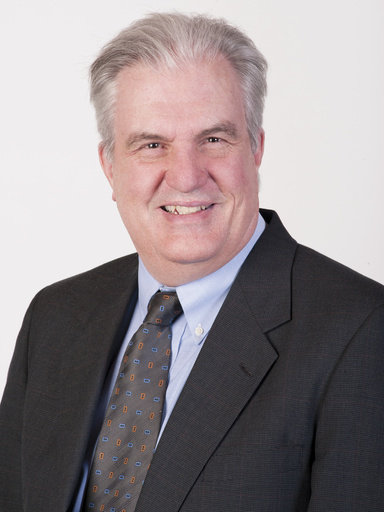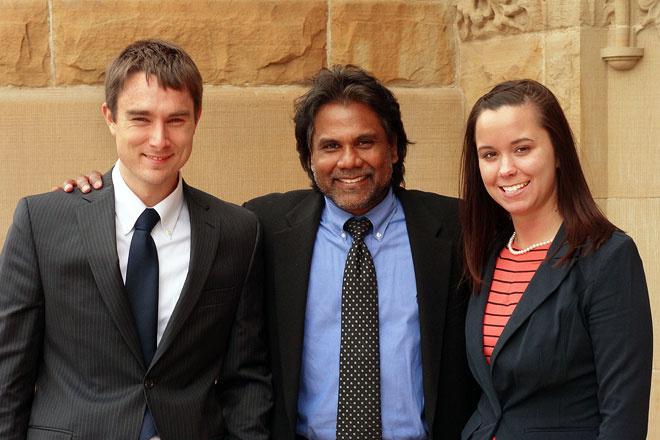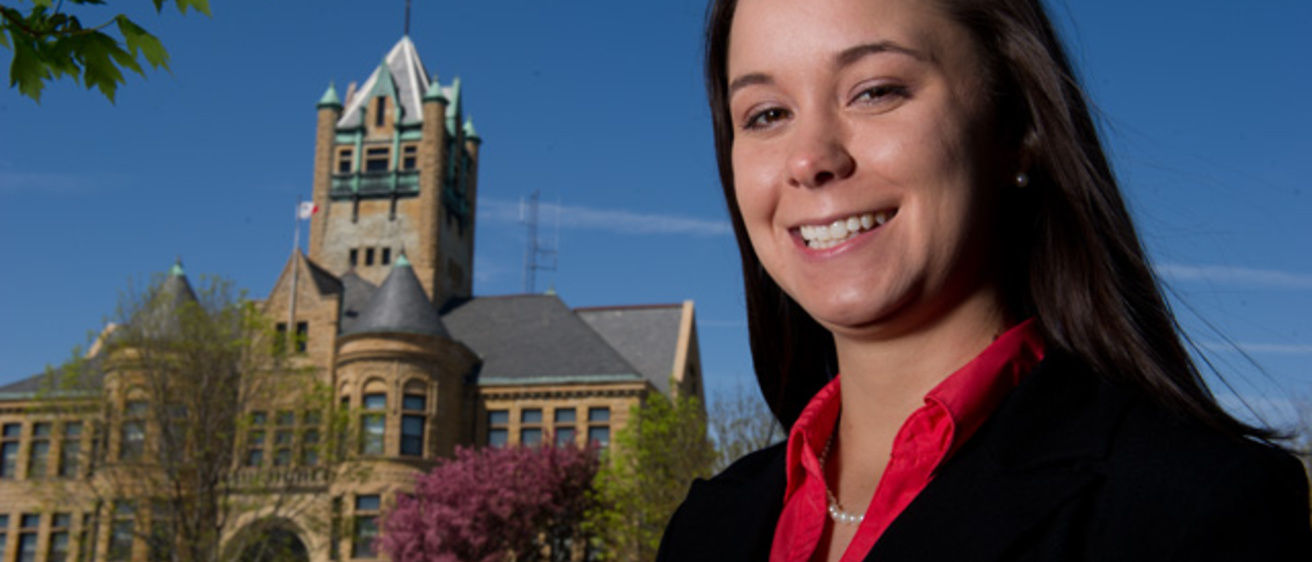When she started law school two years ago, Emily Ehlers was strongly considering a career as a public defender.
After spending the last semester working as one in the Johnson County Public Defenders Office, there’s no longer a doubt in her mind.
“With certainty and clarity, I can say I want to be here,” says Ehlers, a second-year University of Iowa College of Law student from Denison. “There’s challenges and surprises every day, I’m never at my desk for eight hours, it’s intellectually challenging, and I get to think on my feet.
Ehlers is participating in a pilot project that will put law students in Iowa public defenders offices as interns during the academic year. She and third-year law student Scott Quellhorst worked in the Johnson County office this spring, and Emily Hughes, the UI law professor who is developing the clinical externship with Johnson County Public Defender Peter Persaud. She says it will not only give law students an opportunity to practice law in a courtroom setting, it will provide additional resources to public defenders offices that are under-staffed.
Hughes’ program is one of several that the College of Law provides to help the state’s public defender system. John Whiston, clinical professor of law, says the college’s law clinic takes referrals from the Johnson County office and so acts as something of a “branch.” He says that last year, about 25 students worked on more than 100 cases on referral.

“Our students get the same appointment orders, the same discovery orders, same option to retain experts at public expense,” he says.
The clinic also has externship programs with the federal public defender in the Northern District of Iowa in Cedar Rapids and the State Appellate Defender in Des Moines. Whiston says two or three students typically work in each of those programs every year.
The Citizen Lawyer Program also refers eight to 10 student volunteers to the Johnson County Public Defender each year to provide various forms of volunteer assistance, says Linda McGuire, association dean and program director.
Ehlers and Quellhorst each spent about 30 hours a week at the public defenders office during the spring while still taking classes at the law school, doing similar tasks as any of the attorneys working there. They interviewed clients, visited them in jail, took depositions, represented them at arraignments, and other hearings before judges. They would also have had the opportunity to defend their clients at trial, except that none of the cases they worked on came to trial during the semester.

“They get a sense of the fast pace and the workload of an attorney in a public defender’s office,” says Hughes, a former attorney in the Johnson County Public Defenders office herself who co-directed a similar hybrid clinic when she taught at Washington University in St. Louis. “They’ve had to deal with mental health issues, family issues, and all of the other issues that go into their client’s case.”
They’ve represented clients accused of DUI, assault, driving while barred, meth possession, marijuana, and domestic assault. Ehlers remembered her first appearance in court, an informal bond review that was actually held in a judge’s chambers. She spent hours researching and preparing for the hearing and walked in with butterflies for a meeting she soon figured out was pretty routine.
“I was so nervous, but it was over in a few minutes,” she says. “I didn’t even take off my coat.”
Quellhorst graduated from the law school this spring and says the experience will give him a leg up when he starts his career in corporate securities law this summer.
“It gave me an opportunity to actually litigate cases and that requires common skills, no matter the field,” says Quellhorst, a native of Iowa City. “I’ve seen how a case moves from start to finish.”
Ehlers says the work confirmed to her the value of a public defender to a successful judicial system.
“It’s very rewarding to work a case to a resolution that’s satisfactory to everybody,” says Ehlers, who is interning this summer with the Wake County Public Defenders Office in Raleigh, N.C. “Everyone is entitled to a talented criminal defense, and that shouldn’t be dependent on your income, and I get to provide that.”
